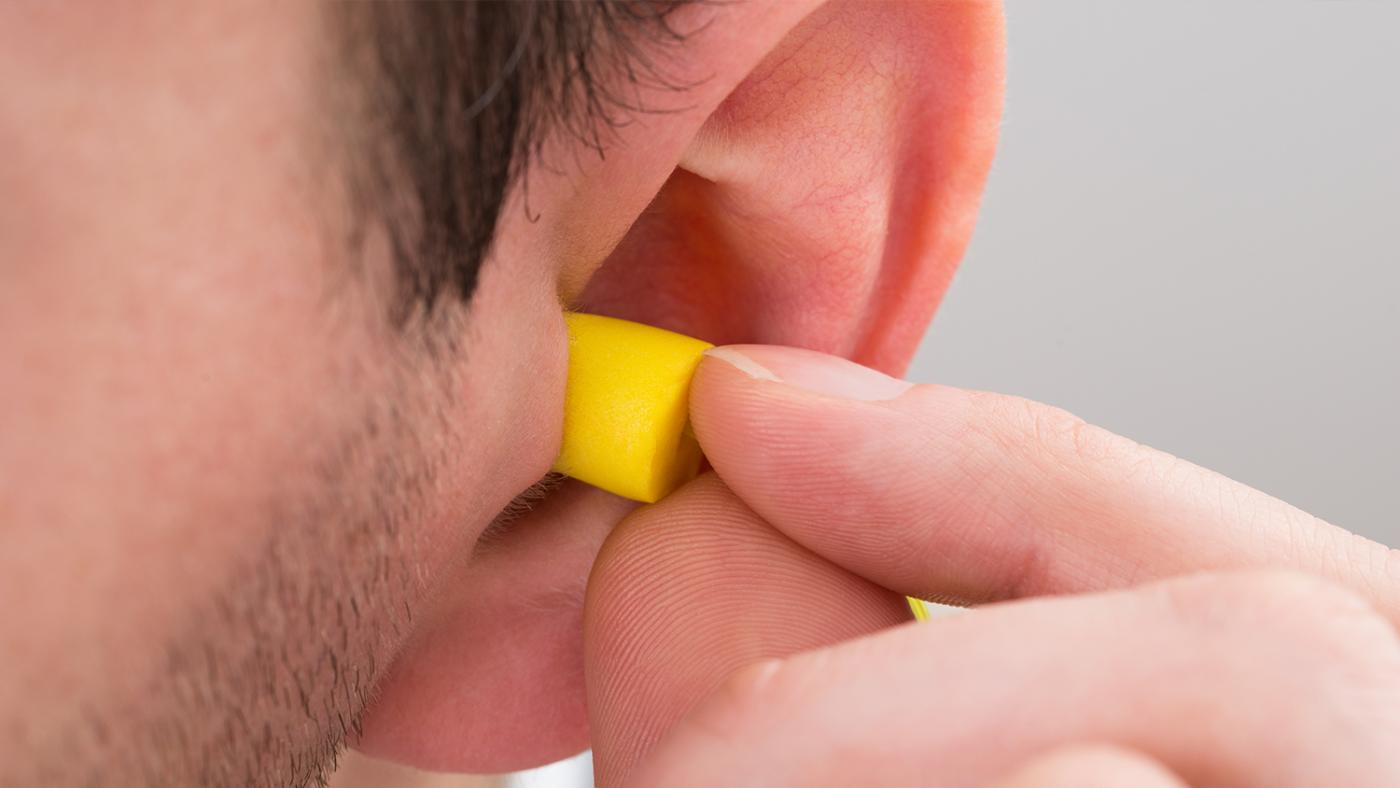Tinnitus: better safe than sorry
‘Students, please wear earplugs’

Tom (25) is a Bachelor’s Philosophy student. He still remembers the night when he got Tinnitus. It happened in 2017 after a concert by Arnhem-based reggae band Lee Ways. His ears kept ringing when he got home. “It was deafening in the silence of my house.” The ringing decreased somewhat after two weeks, but it never disappeared.
Tom constantly hears a “very high-pitched noise, like a squeak”. His ears have been sensitive since that night in 2017, hurting or feeling uncomfortable whenever he finds himself in noisy places.
His tinnitus is not just the result of that one concert, but the evening was “the straw that broke the camel’s back”, he says. “When I was in high school, I would listen to mercilessly loud music on my headphones. People told me that habit would come back to haunt me in the future, but I thought that would never happen.”

Tom. Photo: courtesy of the student
Niels' ears have been ringing for about 3,5 years. He is a 23-year-old Master’s student of Medicine. At first, the ringing was quite intense, which led him to catastrophic thoughts. “I thought I would never have peace again and that it was going to get much worse. I assumed it would make me miserable or even ruin my entire life.”
Unlike Tom, Niels' tinnitus came on slowly. He was a regular at techno parties, where he didn’t wear any hearing protection. “I remember gradually starting to hear a murmur in silent places. It took one or two years to get to what I’m hearing now," which he describes as a ringing and whizzing sound in both ears.

Niels (centre). Photo: courtesy of the student
A common problem
As an epidemiologist at the Department of Otolaryngology (ear, nose and throat) of Utrecht University's Medical Centre, Inge Stegeman has been researching tinnitus for more than ten years. "It’s a sound that people hear in their heads when there’s no acoustic source,” she explains. "It is caused by hearing damage after long exposure to loud noises. Several factors can make it worse, but much is still unknown about it. For some people, stress makes the symptoms more severe, for example.”
That’s something Tom didn’t know at first. “The ringing pretty loud during the pandemic. I was just bummed that I had tinnitus. At the time, I assumed that the ringing would only get louder as I got older, which made me even more stressed, causing the ringing to get even louder."
There is a considerable number of people suffering from Tinnitus in the Netherlands, according to Stegeman. About 23 percent of the Dutch population has it, but it is now known how many of those are students. Research conducted by Stegeman alongside fellow physicians Maaike Rademaker and Diane Smit, among others, shows that 5 to 10 percent of people suffering from tinnitus pose greater demands on the healthcare system. “That’s why we should tackle it as a society. But, even on an individual level, tinnitus patients may have a lesser quality of life. They may work less, study less, or find it less pleasant to be in social environments.”

Inge Stegeman. Photo: TDobber UMC Utrecht
Learning to cope
Both Tom and Niels have sought help for their complaints. “I thought: 'I can’t live with this.' It was really intense. I had anxiety and panicked often. I wanted to go to see an expert.” After searching online, Niels was convinced that cognitive behavioural therapy would be the best thing to do, so he went to Pento Audiology Centre, where a psychologist placed him in a group with other young people.
“It didn’t make tinnitus go away, but those sessions really helped me deal with it. It was all about shifting my focus. That’s how I learned that it wasn’t so much tinnitus that caused my symptoms, but the catastrophic thoughts I had.” Being able to recognise those thoughts and not go along with them enabled him to no longer be bothered by the ringing in his ears at all.
As for Tom, he came across a YouTube video that claimed one can control tinnitus. “That man talked about the most basic things: make sure you take hot showers. Take walks. Focus on other things. And that worked wonders.”
Earplugs
Stegeman says there are many variations of tinnitus. Her research also focuses on treatment methods and which type works best for certain complaints. In addition, she has been focusing on prevention more and more. “If we prevent it, we won’t have to treat it anymore.” She says earplugs are indispensable, a lesson Tom has learned. He now wears earplugs whenever he has a gig or goes to a concert. After all, if he puts too much strain on his ears, the ringing gets worse.
Master’s student Tara (23) knows she has to protect her ears, but often fails to wear protection. She goes to festivals regularly and goes out clubbing about six times a month. “I think earplugs are too expensive and I tend to forget them.” She's had a ringing in her ear once or twice, but it went away that same night. “When I’m at a party, I’m mostly concerned with the party, not with my ears.”
Veterinary Medicine student Dionne (24) also forgets her earplugs at home often, but she usually does wear earplugs at festivals. She goes to about six of them a year. “It's annoying to have to ask what the other person is saying three times because you hardly understand each other. But I can still hear the music well.”
It is unlikely that venues will turn down the volume voluntarily now that the government has ignored the advice of the Health Council, which recommended a mandatory limit of 100 decibels (link in Dutch, Ed.). “The approach of promoting earplugs seems more feasible to me,” says Stegeman. But few people do it, even when earplugs are offered for free. “We’re not saying students shouldn’t go to parties, but it would help their ears if they wore earplugs. Our research aims to find out how we can motivate people to do that.”
Stegeman is currently finalising a study based on all the scientific articles that have been written about noise protection. She cannot say yet what the exact effect of a lower noise level would be on the nightlife experience.